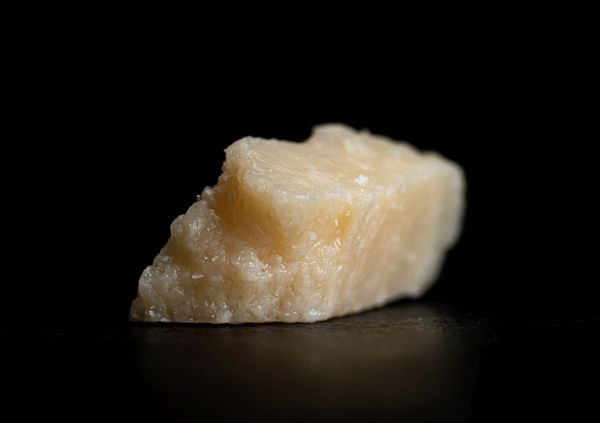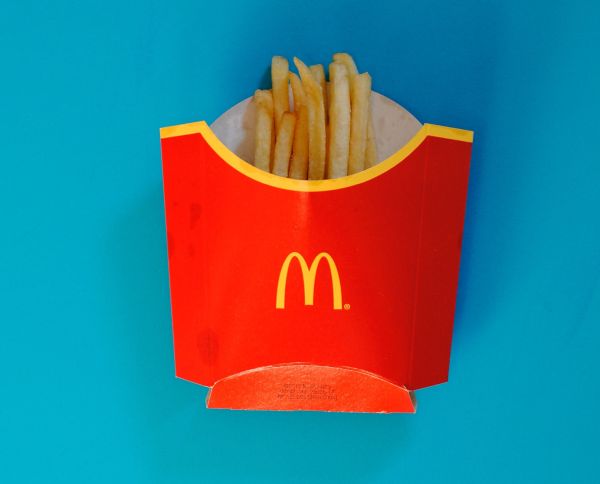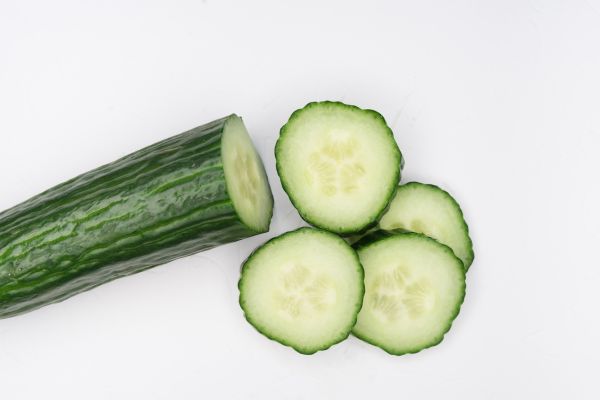6 Unusually Specific Suggestions for Eating More Sensibly
Here’s an idea for a science fiction novel: there’s a planet whose residents have spent millions of years learning to find a scarce and precious stubstance that keeps them alive. Evolution weeded out everyone who wasn’t extremely determined to locate and exploit this resource. This precious substance, in its many forms, is naturally loved and celebrated by all, and has a central role in every culture on the planet.
The sci-fi twist comes when people discover technologies that can produce vast quantities of this once-scarce resource. Over the course of a few generations, people go from contending with its scarcity to contending with its overabundance. Each character in the book has to find their own way to manage the consequences of this traumatic reversal, namely that they are haunted by ceaseless instinctual cravings that no longer serve them.
This is of course a major plotline in our own reality. We’re biologically tuned for a world with scarce eating opportunities, but happen to find ourselves in an artificial environment that contains a deadly overabundance of such opportunities. Most of the food encountered in this environment is of low quality, optimized for scale, and designed to exploit precisely those pleasure-seeking instincts that are so hard to manage. It would be a thrilling story if we weren’t entangled in it ourselves.
(Some people don’t like when I write about food and eating. I assume this is precisely because it’s such a pervasive human concern, just like money, politics, and youth/aging, that it’s hard to get away from and therefore not always a welcome topic of discussion. I understand this reaction and would recommend these non-food-related posts instead of this one.)
It’s safe to say that most of us have to invest some amount of energy managing our inherited instincts towards food, particularly the one that tells us we should never miss a chance to eat something good. This familiar kind of self-management is usually called “eating sensibly.”
The usual eat-sensibly advice is perhaps most tightly encapsulated by Michael Pollan’s “Food Rules” — Eat food; Not too much; Mostly plants. These rules make for a nice general heuristic, but it’s not a particularly motivating one.
I’ve always found that specific advice tends to be more useful than general advice, because it points more directly to the moments at which you turn off the beaten track of habit and instinct. Here are some more unusual and specific angles to take, in navigating the challenging sci-fi premise we find ourselves in.
1) Practice micro-renunciation.
Many efforts to “eat healthier” or “cut down on junk” depend on hard boundaries and long-term vows with low rates of success. You might declare yourself, as of this or that Monday, to be a person who no longer ever scarfs potato chips, orders takeout on non-special occasions, or self-consciously adds a chocolate bar to the checkout conveyor.
This desire to change a habit once and forever is understandable — if you don’t scarf the chips this time, you’ll just do it next time, right? Permanent lifestyle change or bust!
I’m an advocate of scaling down our acts of renunciation. Instead of renouncing a given food or food-related behavior in all of its instances, try renouncing particular bowls of chips or siren-singing chocolate bars. Opting out of one particular bowl is generally doable — fulfilling lifelong vows is not. And every time you renounce a singular snack opportunity, you see how it is always within your power to do so, and that all temptations instantiate themselves in this time-limited and singular way.
When my host brings out a bag of Cool Ranch, rather than partaking with abandon if I’m currently “allowed” to, and feeling left out if I’m not, I might remember that voluntarily renouncing this random bowl of chips is not that difficult and feels immediately rewarding, plus the temptation only lasts until others devour it, which never takes long.
I’ve written more about micro-renunciation here.
2) Play around with the “eating speed” variable.
As someone once accused of eating a slice of homemade fudge “like it was a sandwich,” I am familiar with a certain instinctive tendency to eat needlessly quickly. I suppose something in me wants to keep the pleasure levels high. Slowing down seems like it would make the experience last longer, but only by stretching that pleasure disappointingly thin.
That’s not the way it works, though, when you test it out — when you consciously slow down, you find that there’s more overall enjoyment to be had. It’s not the same number of enjoyability units being stretched out over more time units. A high eating pace is a waste of pleasure.
When you slow to below your habitual pace, you will feel a hint of impatience, similar to that of driving behind a car that’s going a little too slow. Let that feeling be a cue to settle in the new pace, letting the current bite have a longer turn than usual on the merry-go-round. In my experience this is easy enough, and feels at least as satisfying as tumbling along at the usual pace, but it doesn’t happen without conscious intention.
3) Move away from low-quality cheese.
There are hundreds of cheeses, and they vary widely in properties we can call flavor-per-calorie (FPC) and calories-per-dollar (CPD). A light shredding of five-years-aged white cheddar imparts more flavor than a whole slice of cheap mild cheddar, for example — it’s higher FPC. Likewise, asiago has much more punch in it than four times the amount of brick-packaged mozzarella. Low-quality cheeses tend to compete on price, which means high CPD but low FPC.
Most cheese-involving foods can be remixed using high-FPC cheeses like emmenthal, asiago, more pungent cheddars, parmesan, blue if it’s your thing, and so many more. Going high FPC (instead of high CPD) also means you get to enjoy higher-end ingredients without increasing your cheese budget. This adjustment could save hundreds of questionable calories a day for someone who puts cheese on things a lot. Coupling this with a judicious down-shifting of eating speed is a winning combo. The world of cheese opens up when you go high-FPC.
4) Experiment with voluntarily “wasting” small amounts of food.
Many of us have grown up with the belief that leaving something on your plate, and eventually scraping it into the trash, isn’t just wasteful but wrong. This doctrine makes sense if the problem is finding enough food to survive, but not if the problem is habitual overconsumption. In that case, it’s doubly wasteful to use your body to dispose of the excess, because it only makes you into a human garbage can. Nothing is saved here — the extra intake is unlikely to be beneficial in any way, unless you anticipate life descending into starvation conditions sometime soon. (Of course, you can usually save any excess as leftovers anyway.)
Leaving uneaten a small, sacrificial pile of peas or mashed potatoes helps train our ability to voluntarily stop consuming, without deferring to artificial “finishing points” such as an empty plate. It returns the locus of control to your intentions and judgment, rather than leaving it to predetermined conditions such as how much food ended up on the plate in the first place.
Cut down on the larger problem of food waste in more direct ways — make use of all that old pantry stuff, and don’t let anything go bad in the fridge.
5) Add plain, undressed vegetables to every meal.
You may have read my much longer diatribe on this point. Try the bold move of including an unadorned vegetable in every meal — plain steamed broccoli, unsalted cucumber slices, or carrot sticks with no dip. Just eat some damn plants, without trying to soften the blow by way of seasonings or dressings. In a culture in which food is always always expected to entertain while it nourishes, it’s strangely freeing to eat a thing solely for its nutritional value. Discover and appreciate, even if you can’t precisely enjoy, the natural planty bitterness and crunch of plain vegetables — which, by the way, have already been selectively bred to be far more palatable than the original forms your ancestors were so pleased to find.
I’m serious when I say this practice is liberating. By doing this you’re defying a strange and almost invisible cultural norm: we’ve come to expect food to always serve the tastebuds, and sometimes to also serve our health and longevity. This backwards view of food is a recent human conceit, and frankly it’s killing us. Once you break through the all-must-taste-good barrier, you can add a few plain or raw veggies to every meal, to remind the body and brain that there’s no reason whatsoever that all of our eating must be entertainment, and in fact it is insane that we ever believed it should be.
6) Pretend — or realize — that this may be your last meal.
One of the reasons I’m fond of the novel All Quiet on the Western Front is because the characters — pitifully undersupplied German soldiers — spend inordinate amounts of time fantasizing about food. They daydream aloud about canned green beans and still-chewy bread ends, and by the end of the war half-jokingly claim that they now storm English trenches solely to capture their highly-prized tins of corned beef. Their worship of ordinary food always made whatever I was eating — cheese and crackers, lentil soup, scrambled eggs — feel precious and also sufficient.
I still sometimes pretend that the sandwich I’ve made for myself — with pastrami, tomato, mayo, mustard, and pickle on ciabatta bread — is for me a rare and transcendent eating experience, as it would have been for almost everyone who has ever lived. It also makes less-exciting foods (such as the plain carrots and cucumbers praised above) feel much more deserving of gratitude. Flipping into this mindset, when I am able to, doesn’t only make the food taste better, it makes it more fulfilling, tempering the usual impulse to overconsume.
If the WWI soldier fantasy doesn’t resonate with you, almost anyone can get the same effect through a Stoic practice called the “Last Time” practice. You pretend — and in doing so realize it’s true — that this meal could be the last one that ever sits before you, which deepens and transforms the experience of eating it. Even in a life in which food is ubiquitous — for better or worse — it should at least sometimes appear to us as a rare and precious thing.
***
Photos by Mae Mu, Andre Benz, Arnold Antoo, Nathan Dumlao, blackieshoot, Nik, Markus Winkler, and Judgefloro






